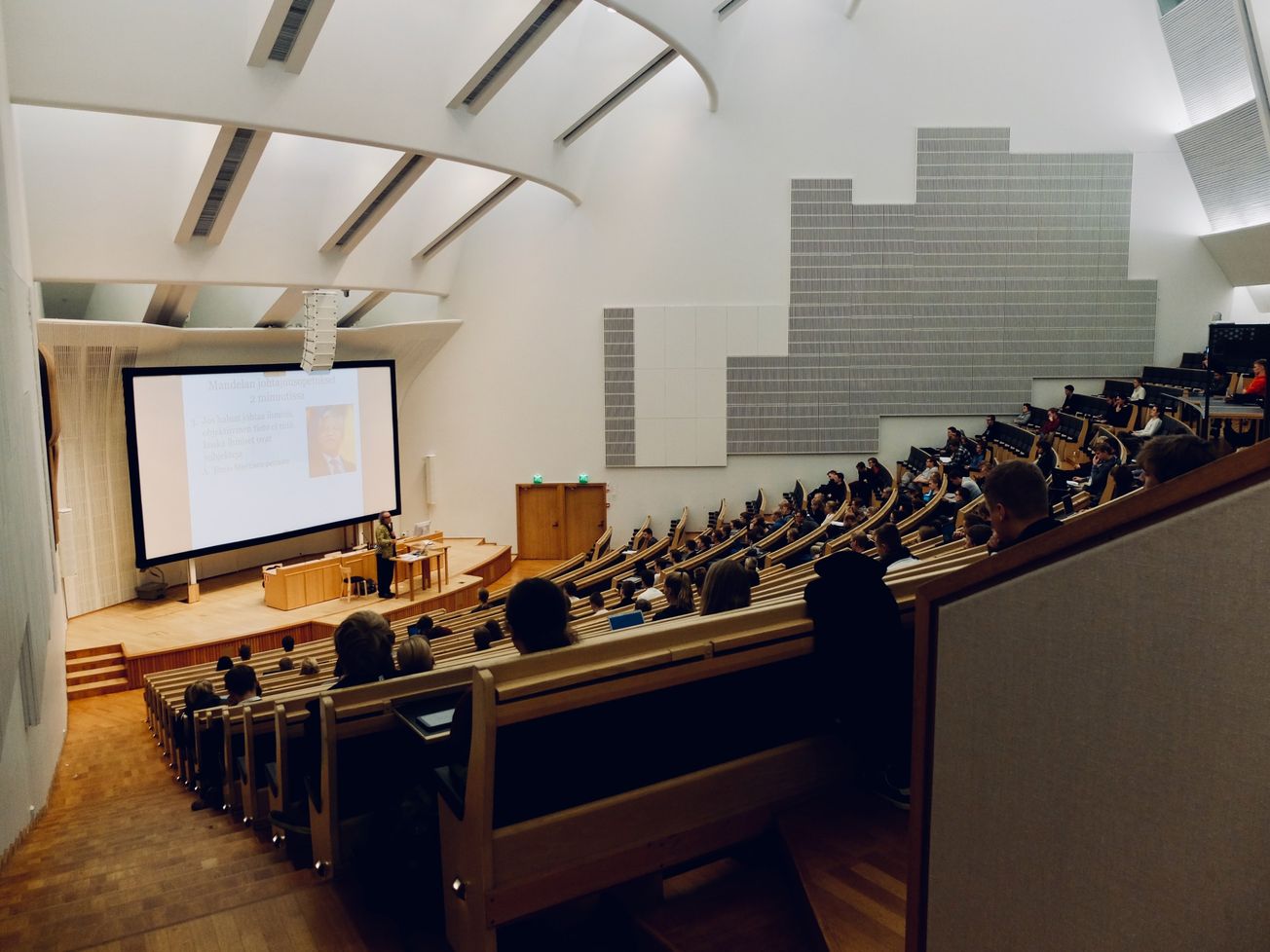By Annie McNamee, First Year Film and English
Four years ago, a pandemic and subsequent cost of living crisis would have sounded like a bad dream. Now, the concept of a normal academic year of uninterrupted education would seem much more far-fetched for many students.
‘It just feels a bit unfair.’ These are the words of a second year student discussing the amount of teaching time that has been lost due to the impact of Coronavirus and strike action.
Whilst supporting lecturers’ reasons for undertaking industrial action, she couldn’t help feeling upset at the significant impact that strikes have had on students’ studies.
Striking is a last resort, but we know we must do it. ⁰⁰Students can see this and are standing on the picket lines with us. ⁰⁰The sector can afford to meet our demands, but only we can make it happen. ⁰
— UCU (@ucu) February 13, 2023
📢 @Dr_UmranAli
⁰#ucuRISING pic.twitter.com/Rwzv5J236q
With 18 days of industrial action planned across February and March, university lecturers are joining almost 500,000 workers across Britain in demanding fairer pay and improved working conditions. Lecturers are specifically concerned about the lowering of employer pension contributions — the average lecturer is forecasted to lose 35 per cent of their retirement income — and the prevalence of workforce casualisation, a process by which staff are employed on precarious short-term contracts with little job security. Over a third of University staff at Bristol are estimated to be members of a union, and therefore many will be joining the strikes.
Contrary to what newspaper headlines might imply, this means that more lecturers will be working than striking. While there is widespread sympathy and support for those striking—a recent YouGov poll suggests that more than 50 per cent of the public support teachers in their fight for better pay and working conditions —many lecturers are choosing to remain in work. Epigram spoke to academics at the University regarding their motives for not striking.
There are multiple reasons staff may not take part in strike action. Some remain satisfied with their pay and conditions. Others, however, are financially unable to forgo 18 days worth of pay to protest alongside their colleagues. This is ironic, given the fact that pay increases are one of the central demands of the strikes, as lecturers have seen their salaries fall by an average of 11 per cent from 2010 to 2022.
I’m going on strike tomorrow not because I’m a feckless, lazy, overpaid lecturer, but because I’m chronically overworked, my pension has been eroded to a sum I can’t live on, and years of insecure contracts drove me to a near complete breakdown (twice!) #WhyImStriking
— Lucy Weir (@LucyGWeir) November 30, 2021
Every academic who spoke to Epigram, including those who were joining the industrial action, said it was a difficult decision to make, given the detrimental effect that 18 days of strike action will have on students’ learning.
A French tutor, who wished to remain anonymous, told Epigram that they couldn’t personally justify striking, given the significant disruption that industrial action has had on students’ studies. However, out of respect for their striking colleagues, they said they would not cross a picket line.
Another explained that, despite coming from a country in which strikes are politically and socially important, they felt that it simply wasn’t fair to their students to take away so much learning time, which may be difficult to compensate for. Both were still supportive of the strikers’ causes.
There is one feeling shared by everyone who spoke to Epigram and that is a sense of disappointment
Another lecturer told Epigram she was striking for a few days, rather than the entire 18, as she couldn’t afford to take the time off.
Taking that much money out of her wages would leave her struggling to support her family. When asked if she knew of anyone else who felt similarly, she explained that those who weren’t taking part were often not advertising it: ‘You feel like you’re letting the side down, or that people will get angry with you. No one wants that.’
One English lecturer had a different reason for not joining the strikes. Having previously been a member of a union for many years, he left last year, as he was becoming frustrated with how the union was being run.
Strikes by university support staff called off after pay breakthrough https://t.co/lrklS9Vnts
— The Guardian (@guardian) February 17, 2023
He felt that the method of picking four central struggles means that union leaders can be bought off, a process which makes it easier for employers to quash industrial disputes by meeting one specific demand rather than negotiating on all requests. From his perspective, the strikes are ineffective because they don’t give staff enough leverage.
He suggested launching marking strikes during the summer, which would threaten students’ chances of graduation. The UCU’s higher education committee met in January to decide on a marking and assessment boycott (MAB) from April, strategically targeted to hit summer graduations, unless disputes are settled. They had previously cancelled an MAB planned for January.
He apologised with a laugh for this policy: ‘I’m sure the students would be just as upset with that.’
He expressed his sympathy for students, ‘especially this cohort’, who have had a singularly challenging, and much diminished, university experience due to the impact of the pandemic.
The next clip from last night's #ucuRISING Twitter Space is about the marking and assessment boycott
— UCU (@ucu) January 10, 2023
Here is the question and the answer 👇 pic.twitter.com/VJTZAyoCHa
His frustration clearly stemmed from a love for his profession. Recalling his early years as a lecturer, he discussed how he previously participated in votes regarding teaching and curriculums, an involvement he has since renounced. He spoke about his career with a great deal of pride, and seemed hurt at how he felt his position had become increasingly undervalued throughout: ‘When I joined [teaching] it was a community. Now, it’s a corporation.’
Speaking anonymously to Epigram, a second year Law student highlighted that both her learning and ability to make new friends has been detrimentally impacted. Due to strike action, she will see her classmates in any given module a total of four times this term.
Students and staff alike will be keenly waiting for an end to the chaos that has become all too normal in recent times
There is one feeling shared by everyone who spoke to Epigram and that is a sense of disappointment. Students are disappointed with more interruptions to their education and less teaching time for the same high fees, while striking staff are disappointed with their casual working contracts, lack of real terms pay increases and the apparent de-valuation of their once highly respected role.
After three years of disjointed learning, there is no doubt that students and staff alike will be keenly waiting for an end to the chaos that has become all too normal in recent times.
'They're not listening to us' | Students and teachers express concerns about the Minimum Service Levels Bill
Fair Pay for Nursing? The wages war for Bristol nurses
Unions and University representatives are working to minimise the impact of industrial action, and are hoping to reach a deal that works for everyone. If not, then the potential marking and assessment boycott could jeopardise final year students’ hopes of starting a job after graduation, if their employer requires them to have obtained a particular degree classification, and staff will continue to face unfair and unstable working conditions.
Featured image: Unsplash / Dom Fou
Do you support the strikes?








